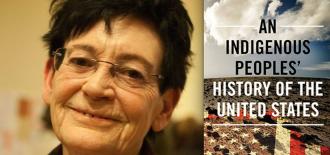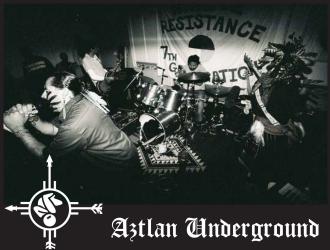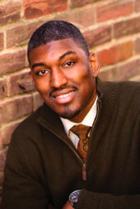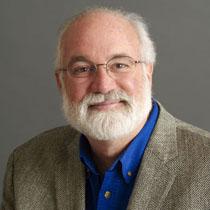The Liberation-Based Healing Conference presents strategies that promote relational healing and liberation from the oppressive patterns that structure society.
This year’s conference theme is “Challenging Inequities: Decolonizing Practices and Social Action”.
- Communication services: (sign language interpreters, note takers) are available for this event. Requests for services must be submitted twp weeks in advance. Please contact Marlene Cardozo, .
- Parking: The closest parking structure is B3. Parking is $6.00. A parking kiosk is located next to the elevator in the parking structure. Please remember to leave your parking pass on the dash board. For more parking information and maps, please refer to the following link: http://www.csun.edu/parking/
visitor-parking-information.
DAY 1 - FRIDAY, NOVEMBER 13, 2015
Greeting: José Miguel Paez, MSW, LCSW
Opening Blessing: Rudy Ortega, Jr. (Fernandeño Tataviam, Tribal President)
PANEL 1: Human Rights, Educational Systems
This panel will address disparities/inequities in education and human rights across multiple sites of lived experiences among various communities. Panelists will apply a decolonial lens and intersectional lens to their analysis offering viable and accessible strategies for practice and social action.
MODERATOR: Diana Melendez, MSW, LCSW
PANELISTS: Doctors for Global Health Willie Tolliver, MSW, PhD; Michael Yellow Bird, MSW, PhD
PANEL 2: Gender-Based Violence
How are gender, gender oppression, and gender-based violence (GBV) understood and addressed within a decolonial politic? This panel will address gender violence/oppression at all levels (institutional, community, and family) affecting all genders and communities. This panel will also present transformative approaches to addressing this violence that work to promote healing and accountability for individuals and communities. Examples of GBV throughout the lifecycle include (but are not limited to): sex-selective abortion, differential access to food and services, sexual exploitation and abuse, including trafficking, child abuse, sexual harassment, honor killing, intimate partner violence, deprivation of inheritance or property, and elder abuse.
MODERATOR: Gita Mehrotra, MSW, PhD PANELISTS: Mimi Kim, MSW, PhD Kimberly Robertson, PhD (Muscogee Creek Nation) Amita Swadhin, MPA
PANELISTS: Mimi Kim, MSW, PhD; Kimberly Robertson, PhD (Muscogee Creek Nation); Amita Swadhin, MPA
 KEYNOTE SPEAKER: Dr. Roxanne Dunbar-Ortiz, Author of "An Indigenous Peoples' History of the United States"
KEYNOTE SPEAKER: Dr. Roxanne Dunbar-Ortiz, Author of "An Indigenous Peoples' History of the United States"
Topic: "Healing and the Colonial Condition"
The mainstream media as well as health professionals regularly expose and denounce the poverty and social dysfunction found in Indigenous communities, whether urban or rural. Rates of alcoholism and suicide are far higher than national averages. Similarly, such unhelpful expositions are made about African-American communities. As well-meaning and even accurate as such portrayals are, they avoid confronting the specific circumstances that reproduce Indigenous and Black poverty and social scarring--namely, the colonial condition in which the United States maintains the structures of settler-colonialism. In continuing to disregard treaty rights and deny restoration of sacred lands, the ongoing US settler-colonial regime prevents Indigenous peoples from performing their most elemental responsibilities as inscribed in their cultural and religious teaching. In other words, sovereignty equates to survival--nationhood instead of genocide. And, the social and political denial of the continued effects of chattel slavery and the reproduction of white supremacy on subsequent generations of African-Americans can be seen in the refusal to take up the case for reparations. Poverty and dysfunction are the results.
PANEL 3: Transformative Therapeutic Practices
This panel will focus on transformative therapeutic practices, stemming from its origins at The Institute for Family Services. Panelists will apply a decolonial and intersectional lens to their analysis, offering concrete, accessible strategies for practice and social action that challenge inequities. Specifically they will offer a description of their model, along with examples for how to apply its main tenets with clients and students.
MODERATOR: José Miguel Paez, MSW, LCSW
PANELISTS: Lisa Dressner, MSW, LCSW; Andraé Brown, PhD, LMFT; Rhea Almeida, MS, PhD, LCSW, Founder of IFS; Eunjung Ryu, PhD, LMFT, LCSW, ACSW
 Closing Ceremony: Aztlan Underground
Closing Ceremony: Aztlan Underground
Aztlan Underground: Yaotl Mazahua, MSW student, Joe Galarza
DAY 2 - FRIDAY, NOVEMBER 14, 2015
FREE AND OPEN TO THE PUBLIC
Opening Performance: Pico Youth & Family Center (PYFC)
Panel 1: State Sanctioned Violence / Police Surveillance
This panel will address state sanctioned violence and surveillance disproportionately targeting specific communities and identity markers.
MODERATORS: Kaiya Bailey, MSW; Maxine Amondo, MSW Student
PANELISTS: Youth Justice Coalition; Queering Brotherhood; Kenny Green, GRYD, Community Intervention Worker and Project Director at Toberman
PANEL 2: Environmental Justice
How do we create equity around the sharing of benefits and burdens of environmental resources like water, food, air, toxic waste etc.? This panel will address environmental justice and its many manifestations throughout global and local communities in Los Angeles.
MODERATOR: Nocona Pewewardy, MSW, PhD
PANELISTS: Alma Trinidad, MSW, PhD; Diana Melendez, MSW, LCSW; Cornel Pewewardy, PhD (Comanche-Kiowa)
KEYNOTE: Evolution and The Politics of Change
This panel will address the process/experience of evolving one’s perspective and the politics surrounding such changes.
 Moderator: Andraé Brown, PhD, LMFT
Moderator: Andraé Brown, PhD, LMFT
KEYNOTE SPEAKERS: Rhea Almeida, MS, PhD, LCSW, Founder of The Institute for Family Services; David Banner Grammy Award winning music producer, recording artist, philanthropist, activist, actor, and founder of Heal the Hood
 KEYNOTE: Trauma, Kinship, Justice, Social Action
KEYNOTE: Trauma, Kinship, Justice, Social Action
This keynote will address his work with gangs in Los Angeles, emphasizing the importance of understanding the role of trauma, and how kinship and compassion are key components to social justice movements.
KEYNOTE SPEAKER: Father Greg Boyle, Founder & Executive Director, Homeboy Industries
MODERATOR:José Miguel Paez, MSW, LCSW
JOIN US FOR THE LBHC AFTER PARTY!
TIME: 6:30pm-10:30pm
LOCATION: Orange Grove Bistro, CSUN Campus
TICKETS: Free to the Public
Beer/Wine (cash bar), Light snacks
PERFORMANCES BY: Aztlan Underground and Street Poets, Inc.
